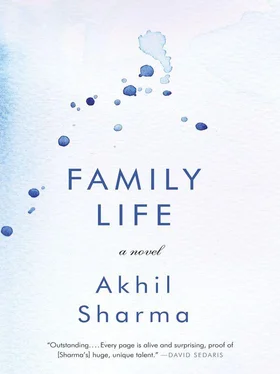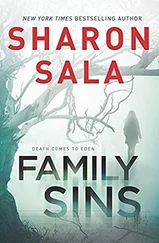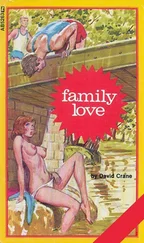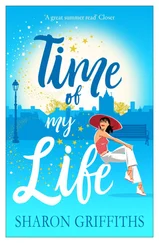My mother learned what my father was doing from her friend Mrs. Sethi. “Mr. Mishra must have been joking,” Mrs. Sethi said apologetically. She was standing in the kitchen wearing jeans and a white shirt. “But you know, Shuba sister, what people are like. They gossip. They say bad things.”
When I learned that my father had been telling people about his drinking, I understood that he must have decided that how we were affected mattered less than whatever benefit he might gain. This filled me with shame.
The evening Mrs. Sethi visited us with the news, my mother shouted at my father in the kitchen. “You should have stayed in the hospital.”
He stared at her without speaking, his eyes wet.
“People wouldn’t spit on you if it weren’t for me,” she said.
A few days later, a financial planner visited. The man was somebody my father had told about being in Bellevue. Immediately this man had suggested that my father buy more insurance. “I couldn’t say no,” my father said to my mother.
“This is what happens. You showed him you were weak and so he thought, Why not take advantage? He’s an alcoholic. What somebody does to him doesn’t matter. ”
The financial planner visited on a Sunday afternoon. He had floppy hair and wore a green suit that seemed large on him. My father brought him into Birju’s room, where the nurse’s aide was holding a bit of onion to Birju’s nose as part of his sensory stimulation.
“If I drink and get into an accident, I need to protect him,” my father said.
It sounded as if he was trying to win pity.
The financial planner had brought a large black binder with different booklets about insurance and investment funds. He spread these out for my father on the living room table. My mother, to express her suspicion and disgust, periodically came and stood in the doorway and stared disapprovingly.
As he talked, the financial planner kept touching my father’s arm and knee. At the end of his visit, when he was about to leave, he said that the next step was for my father to give him power of attorney over his various accounts.
“No,” my father said.
“Why not?” The man looked offended.
“Ji, I don’t know you.” The “ji” was a level of formality and politeness that showed how timid my father was at the time.
“What do you need to know? I can give you my phone number. I can give you my address. You’re an alcoholic. You think you know more than me?”
WITHIN A FEW weeks of my father starting to tell people that he was an alcoholic, the news spread everywhere. One day at temple, Mr. Narayan came up to us and said to my mother, “Ji, you have to stop Mr. Mishra from saying these things. People get happy knowing that others are unfortunate.”
First the doctors and engineers stopped visiting, then the middle-class people — the accountants and the shop owners. The last to stop were the people who lived in Hilltop Apartments, the ones who spoke neither Hindi nor English.
As the news spread and people stopped visiting, I began to feel shy around Birju. When I came into his room, I would feel like we had failed him. I would remember how on my first day at the nursing home I had sat by Birju and noticed how quiet the home was compared to the hospital.
I KNEW THAT MINAKSHI would find out about my father. I was scared of this. I had lied to her about him. I had said that my father was cheerful, that he was a wall around the family. He fought the insurance companies who didn’t want to pay. He managed the nurse’s aides who were unreliable. I had said this because doing so made me look good. Back then we Indian children, at least with each other, felt that our value was to some extent based on our parents. If our parents had gone to college, then we were a certain type of child and were more valuable than someone whose parents had not gone to college. It made sense, therefore, to praise our parents. Also, we felt endangered by the world we lived in, and so to speak ill of our protectors was to make the danger more frightening.
Perhaps six weeks after my father began telling people on the train that he was an alcoholic, the news finally reached school. Minakshi came up to me at my locker. I was kneeling. I looked up at her and my mouth went dry. I felt like I had stolen from her. I was not from a good family but had convinced her I was, and she had come to my house and we had lain in bed and she had let me rub against her.
I stood. Minakshi and I stared at each other.
“I don’t like my father,” she whispered.
Later that afternoon, as we stood among the trees and kissed, I was certain that there could be no better person than her.
Many of the boys at school disliked me. I was arrogant and annoying. I would boast about my grades while simultaneously whining about having to work. Vijay was very handsome. He was tall, which I envied, and he didn’t have an accent. Vijay was smart and got good grades, but I was smarter and got better ones.
One morning, I was walking down a hallway and Vijay was walking toward me. He saw me and began to lurch from side to side. When he got to me, he reached out and dropped his hands on my shoulders. My heart jumped. Staring into my face, he slurred, “I am so drunk.”
I pushed him away and, feeling blood pulsing behind my eyes, hurried off.
Vijay usually sat with the whites at lunch because he was on the cross-country team. Later that same day, he came to the Indian table at the cafeteria. He stood at one end, seven or eight chairs from me. He called out, “How is your dad? Is he feeling any better?”
I looked at my food. The table became silent.
“I hope he’s feeling better.”
Nobody spoke. After a moment, Vijay left. The table remained quiet. There was a minute or two of this silence and then when the boys and girls began talking again, they did not touch upon what had just occurred. I think this was because Vijay had embarrassed all of us. We were all a little shy about the lives we lived at home. At home we didn’t eat the food that white kids ate. At home our mothers and sometimes our fathers dressed in odd clothes. Our holidays were not the same as white people’s. Our parents worshipped gods who rode on mice. To attack someone based on his or her family brought up so much of our own shame that we didn’t have the heart to be mean.
Before we opened any of the letters, we prayed. My mother and I took whatever envelope had arrived that day and put it on the altar in my parents’ room. The first response was from Brown University. The answer was no. We were kneeling before the altar. “It’s OK,” my mother said. She sighed and pushed herself off the floor. A part of me was ashamed to not have done something nice for my mother by getting into this famous university.
I stood. I also felt that I had been found out. I had the sense that Brown University knew all the wretched things about me, that I was not so smart, that in eighth grade, for a report on evolution, I had copied from an encyclopedia.
This and the other rejections came in March. I was now seventeen. We opened the envelopes when I got home from school. The air would be hard to breathe because my mother did her afternoon prayers around then and the incense smoke lingered.
Later, I learned that I was accepted into Princeton because the short story I had submitted as part of my application was read by someone whose older brother had drowned.
My mother opened the letter. She tore off the side of the envelope and shook out the sheet of paper.
“Congratulations!” the acceptance began. I remembered kneeling at the temple in Queens and my mother opening the letter from the Bronx High School of Science.
“All your hard work has borne fruit,” I blurted to my mother. “What you said you would do, you have done.” I wanted no credit for what had occurred. To receive credit for getting into Princeton was to be responsible for having a life that would take me away from my family.
Читать дальше












